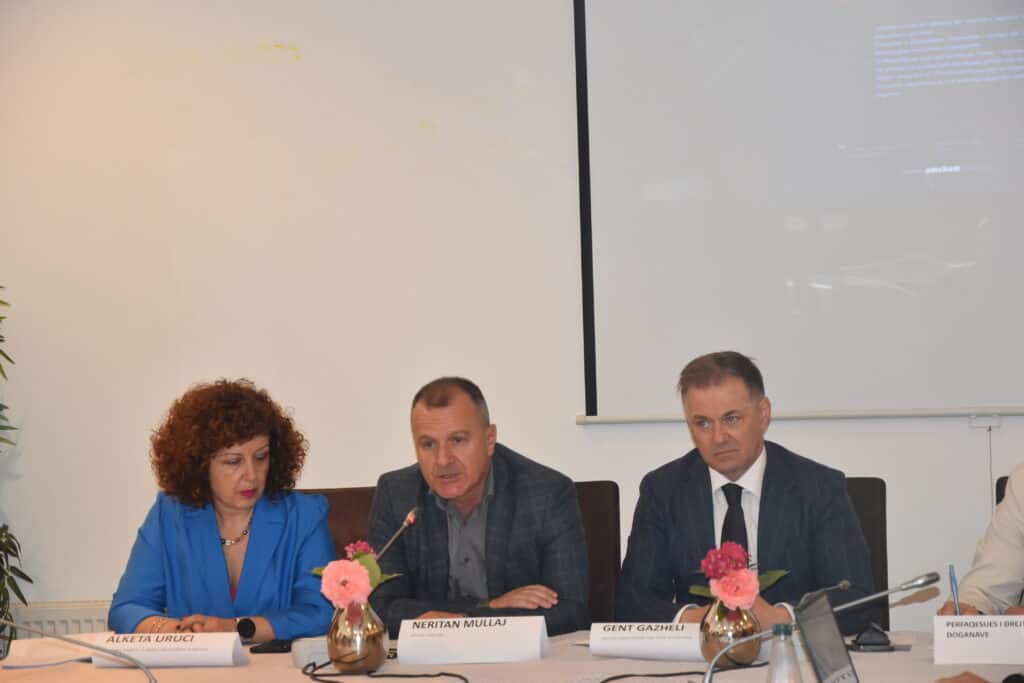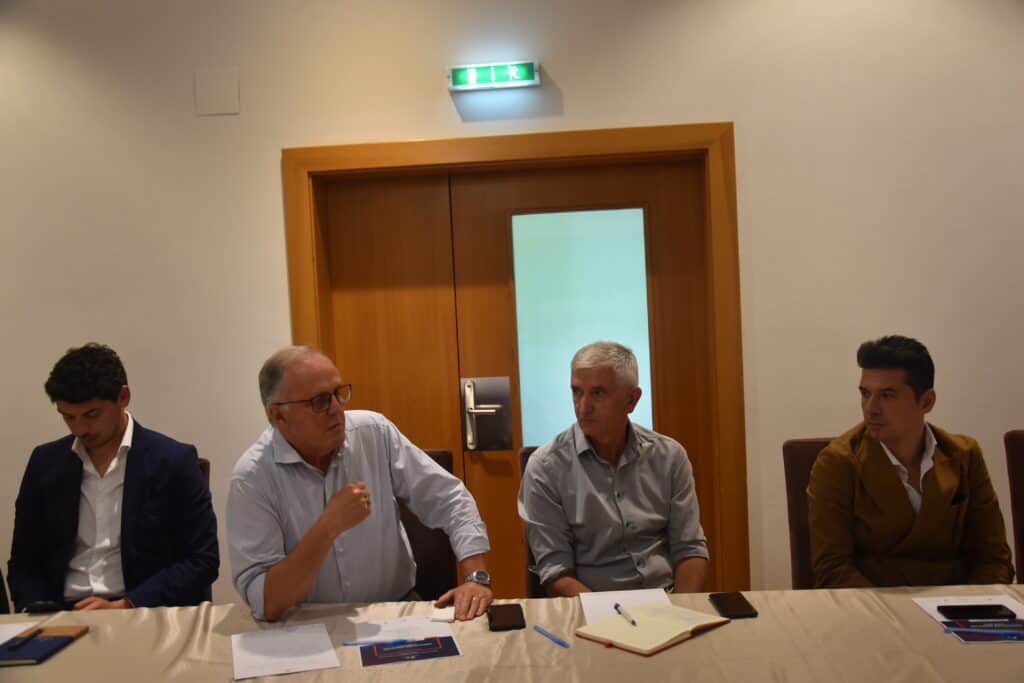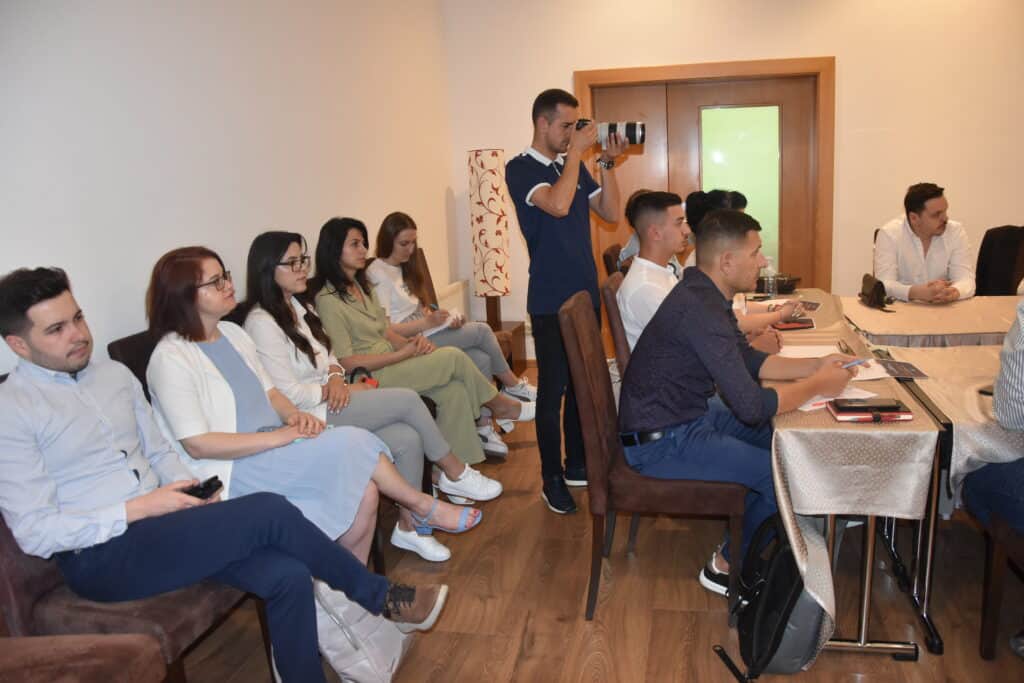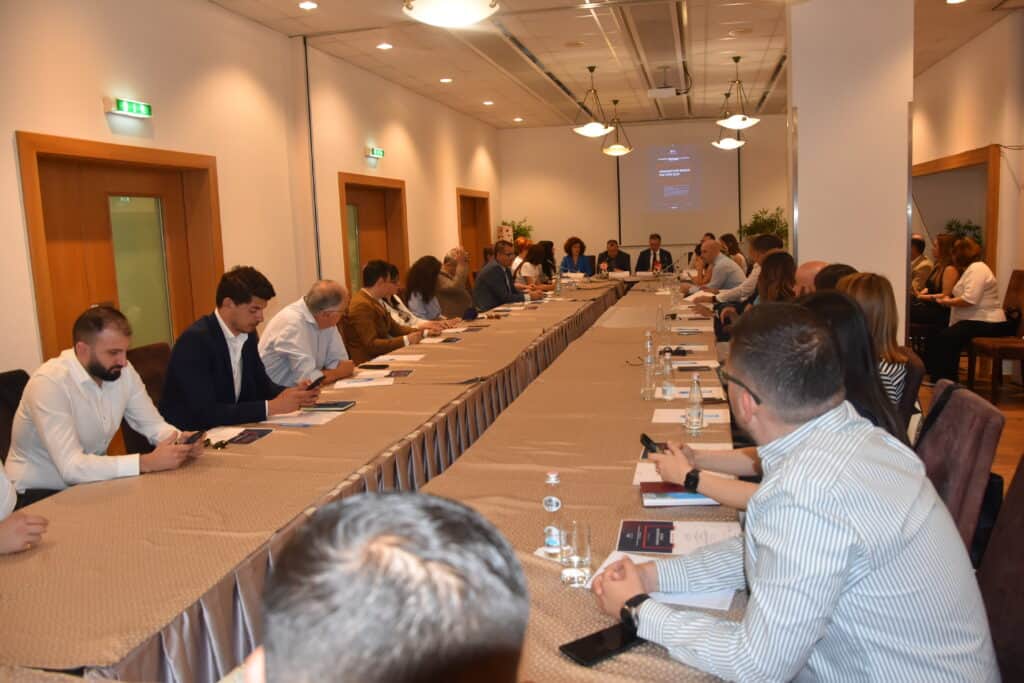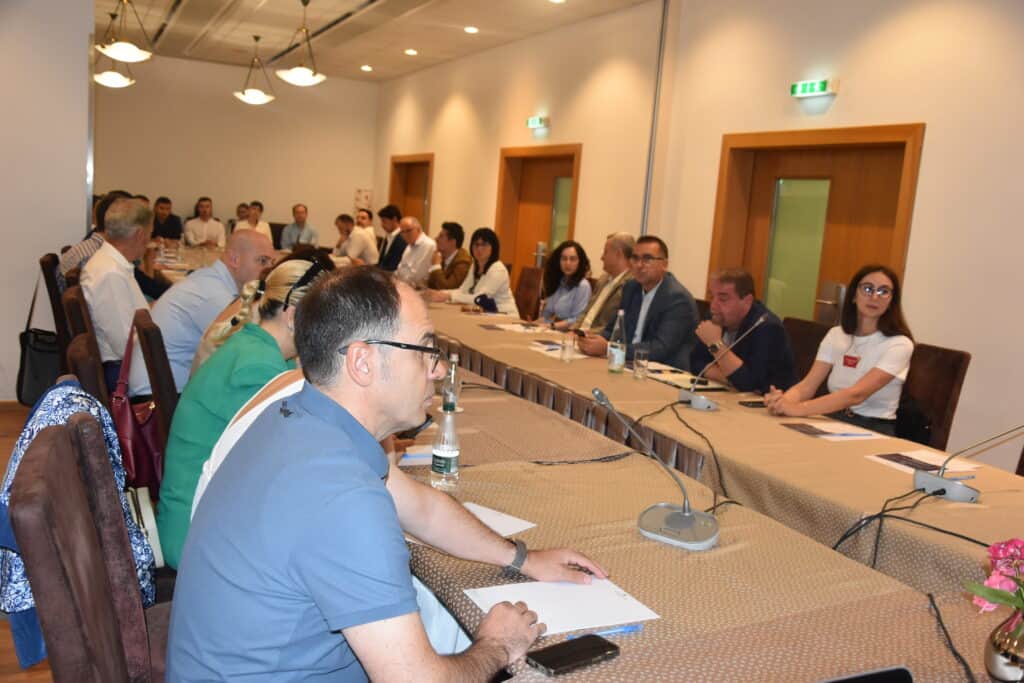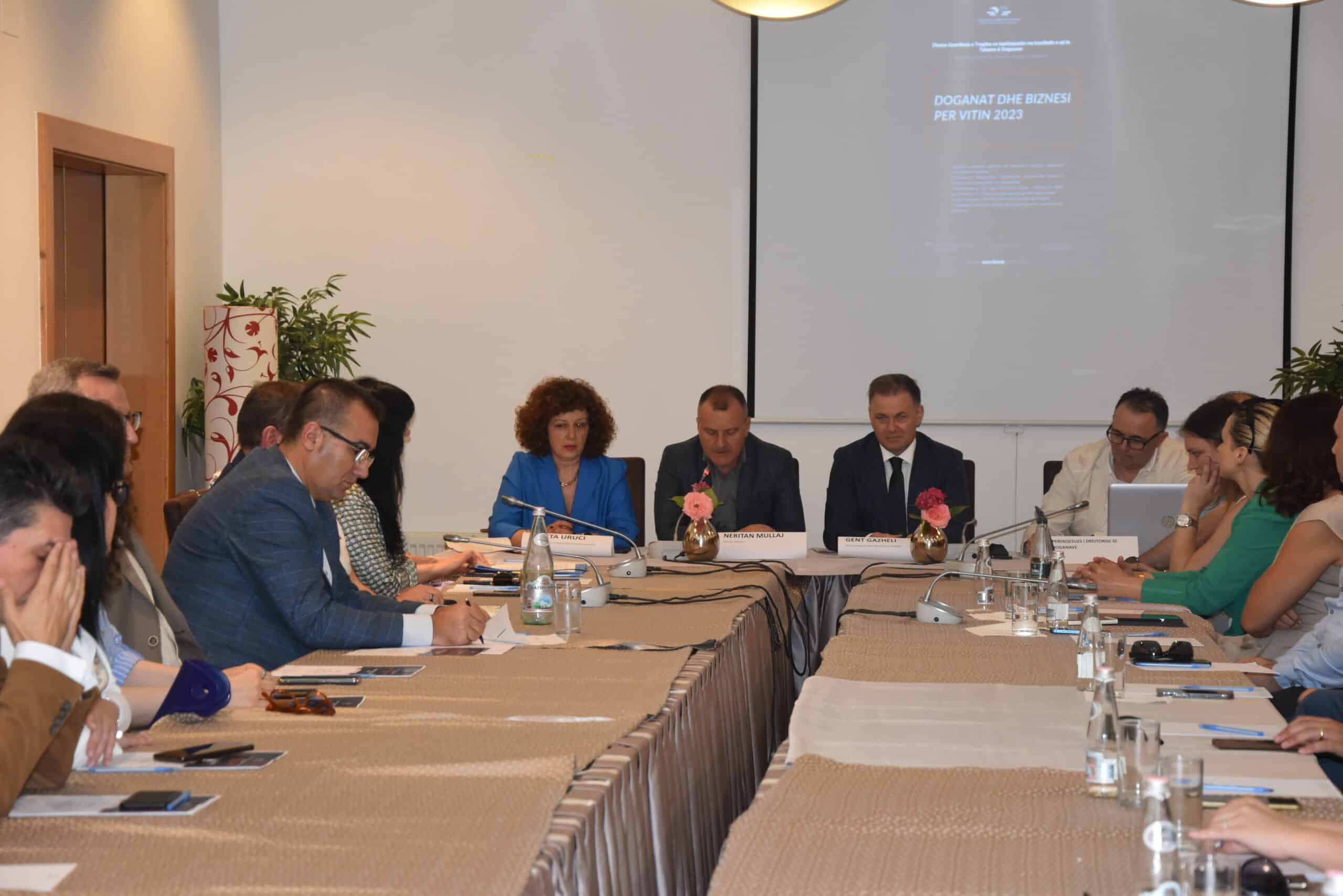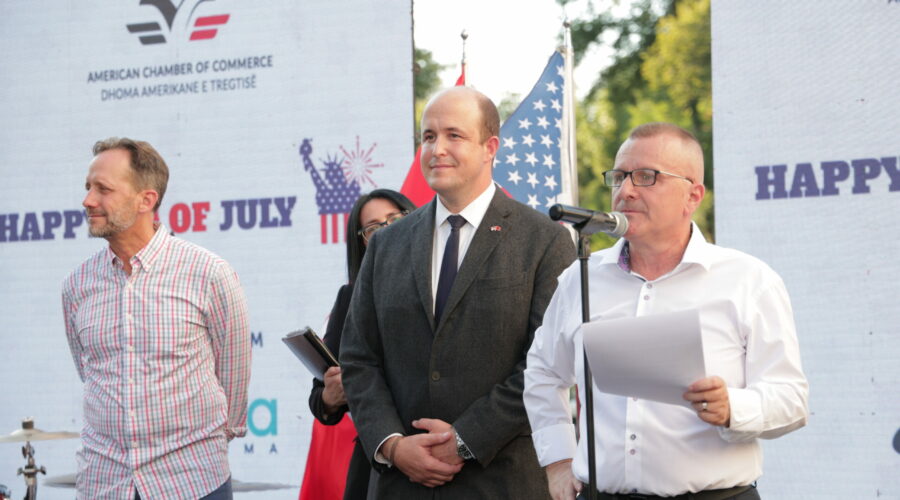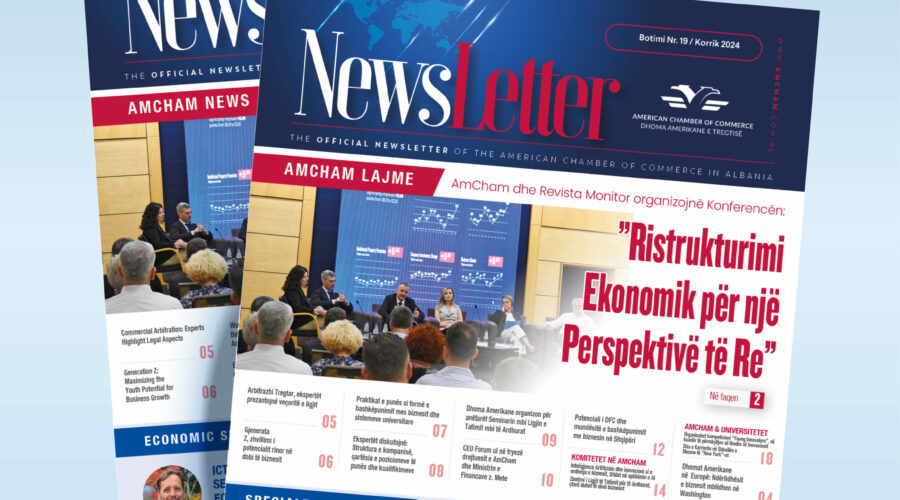The annual traditional meeting with the General Directorate of Customs served as a platform to discuss the challenges faced by businesses when dealing with customs administration. The meeting aimed to find solutions through thoughtful discussions with experts. Mr. Neritan Mullaj, the Director of AmCham, expressed gratitude to Mr. Genti Gazheli, the Director of GCD, and his institution for their willingness to participate in productive discussions that benefit both parties. Mr. Mullaj highlighted that some of the issues addressed in the meeting, such as the matter of references, require definitive resolutions. He also commended the active role played by the customs administration, which has positively influenced the perception of its members, as evident in the Business Index.
Mr. Genti Gazheli, the Director of DPD, appreciated the collaboration with the American Chamber of Commerce and emphasized that record-breaking customs revenues in 2022 were attributed to the digitalization of services and the efforts made by the administration to promptly address concerns and reduce bureaucratic obstacles faced by businesses. He further informed that Albania will soon join the unified customs platform in accordance with the EU directive, which will require the administration to streamline procedures. Regarding the ongoing concern about the use of reference values during customs clearance, Mr. Gazheli stated that their utilization has significantly decreased for products imported from America. In 2023, only 3 percent of these transactions involved reference prices, limited specifically to used goods.
Ms. Alketa Uruçi, Chair of the Tax and Customs Committee, raised important issues that continue to concern AmCham members. These issues included the application of customs references, timely communication with businesses regarding changes in customs procedures, and improved coordination between the tax and customs administrations to facilitate smoother business operations. The use of reference prices also extended to products traded on the stock exchange, with customs still employing the reference method. She stressed the need for customs agents to provide clear explanations for each instance where reference prices are applied. Ms. Uruçi urged the Customs Directorate to take proactive measures in informing businesses about the application of excise taxes on new products, ensuring that additional costs do not burden businesses unnecessarily. Many businesses engaged in the trade of electronic cigarettes, which are not considered pure tobacco, were unaware of the obligation to pay excise taxes. A similar situation arose with coke coal, where the KLSH requested the application of excise taxes, despite the absence of such provision in the law. Ms. Uruçi also emphasized the necessity for better coordination between the tax and customs administrations regarding fiscalization. This would enable the import invoices to be integrated into the tax system, facilitating the fiscalization process.
American Chamber members had the opportunity to directly discuss specific cases related to their businesses with the Customs Director and the management staff, addressing concerns that also affect other members within the sector. The informal import of mobile devices emerged as one of the issues raised by American Chamber members. According to data, the number of devices in circulation ranges from 500,000 to 600,000, significantly exceeding the 200,000 devices declared at customs. This situation creates unfair competition for licensed entities, necessitating measures to curb such illicit practices.
During the meeting, the DPD staff provided a demonstration of the services accessible through the e-Albania portal. These services included customs-related operations, account balance inquiries, and transaction tracking. The meeting with AmCham aimed to further raise awareness among businesses about the value of obtaining the Authorized Economic Operator (OEA) status and the steps required to acquire it. The representatives of the General Directorate of Customs express their readiness to follow up on and review the issues raised by the members of the Chamber.
